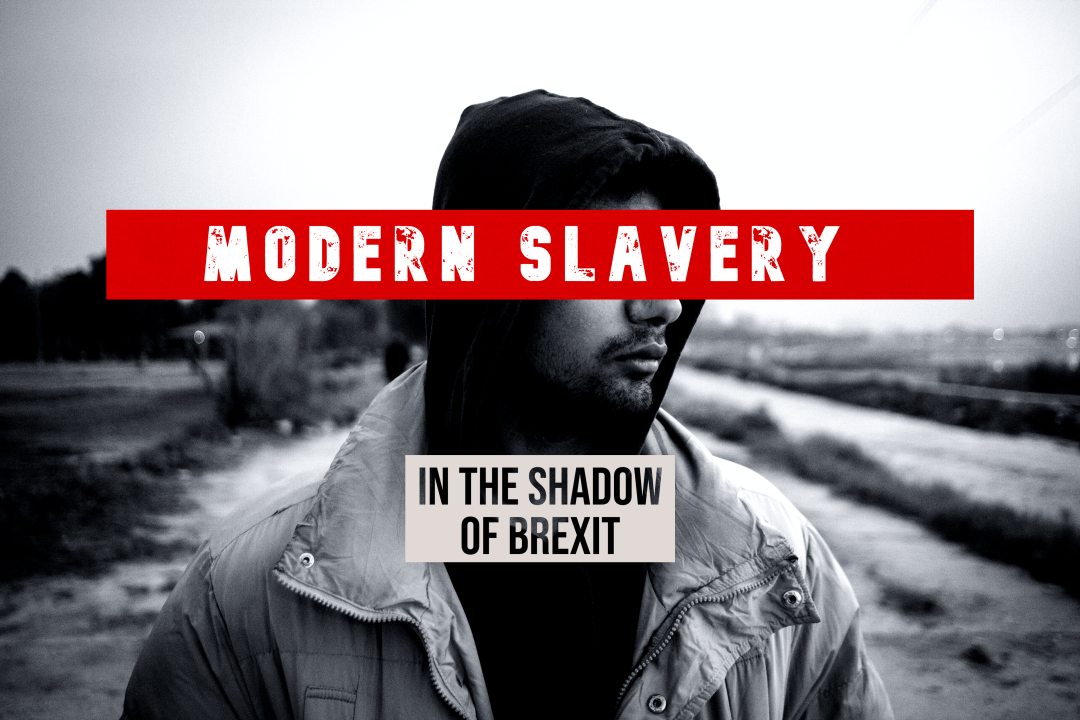If you are someone who has worked long enough as an immigration lawyer and had high-street exposure, I bet you have come across many clients whose stories are similar to the following stories or variants of these stories.
Story 1: Anita (a pseudonym) came to the UK as a student; her student visa was due to expire soon. She found an agent who promised her that he could get her a sponsored job. However, he and the company will charge £20K. Also, her salary will be 16K–17K, but on paper, it will be 26K, and she will have to pay for the NI and PAYE. She borrowed and gathered the money, secured the sponsorship, and is now working hard but still struggling to pay for her basic needs.
Story 2: Mr Singh came to the UK many years ago on a tourist visa. He overstayed and does not have valid leave to remain in the UK. He does not have a wife or children. He is a man in his mid-40s. He does not have a valid passport or ID card. A few years ago, his bank account was also closed. He gets support from his friends, as they let him stay with them. He volunteers at the local Gurdwara. However, this is not enough. He still needs to pay for his food, clothes, and other basic needs in life. So he works at a local restaurant in the kitchen as a kitchen potter. He gets paid $4.50 per hour. He has no hope or plans. He does not get paid for working overtime and is constantly scared about getting detained.
Story 3: Andrei is from a small village in Romania. He came to the UK to work. He does not speak English, except for a few words to exchange pleasantries. After coming to the UK, he started to live in shared accommodations. He found out from his housemates that he could join them in the early morning, around 5:00 a.m. He needs to wait near the high street. A van would come to collect workers to work at a nearby construction site. He will get paid at the end of the day. We joined his housemates, went to the construction site, and worked for over two weeks. He only got paid for three days. They stopped picking him up for work, and he never got paid for his work.
Stories like these are so common that we often forget that they are effectively stories of modern slavery. Stories of modern slavery in the 21st century in the UK.
According to the Global Slavery Index, there are about 136,000 people in the UK who are being forced to work for someone else. Many of these people are driven to work. They owe money, because they are afraid, or because of other forms of coercion.
Modern slavery can take many forms including the trafficking of people, forced labour, servitude and slavery. The hospitality sector is particularly susceptible to issues of human trafficking and sexual exploitation as well as labour exploitation of those working in hotels.
Since Brexit, the UK has been facing a new set of challenges in terms of labour exploitation and modern slavery. The hospitality industry, which heavily relies on low-wage workers, is particularly vulnerable to these issues.
Over 2,800 potential victims of modern slavery, up from 5,000 calls and 1,700 potential victims in 2016. The hospitality industry was the second-highest sector for potential cases of modern slavery reported to the helpline in 2020.
Another source of data on modern slavery is the UK National Referral Mechanism (NRM), which is the system for identifying and supporting victims of modern slavery. In 2020, there were 10,613 potential victims of modern slavery referred to the NRM, up from 7,743 in 2016. The highest sector for potential cases of modern slavery in 2020 was labour exploitation, which includes industries such as agriculture, construction, and hospitality.
Homes England Modern Slavery Act – Policy & Statement 2022/2023 noted that modern slavery is a major issue in the hotel and hospitality industry.
The UK hospitality sector is susceptible to modern slavery. Crucially, the sector has always been labour-intensive, with labour costs constituting a significant proportion of total costs. Issues around compliance with the National Minimum Wage can be traced back to its introduction in the UK.
The post-Brexit immigration regime has focused primarily on offering documented employment to (highly) skilled workers. If the routes to securing documented migrants in the sector are curtailed or significantly reduced, then the labour supply issue will be acute, as there is limited scope in such a labour-intensive industry to substitute labour through automation or off-shoring.
The Anti-Trafficking Monitoring Group (ATMG) has argued that the UK Government’s intention to end the free movement of labour and introduce new immigration legislation to control and curb immigration to the UK could lead to the introduction of overly restrictive immigration policies which increase the vulnerability of migrant workers to exploitation.
The UK’s departure from the EU has led to a shortage of labour in the hospitality industry. The industry has relied heavily on workers from EU countries for many years, and the sudden drop in available labour has led to an increase in demand for workers. This has created an environment where employers may be tempted to exploit workers who are willing to work under harsh conditions and for low pay.
Brexit has led to increased uncertainty and financial pressure on the hospitality industry. Many businesses have struggled to adapt to the new regulations and changes, and the economic impact of Brexit has made it more difficult for them to operate profitably. This financial pressure may lead some employers to cut corners and engage more contractors and sub-contractors to reduce costs who may be using forced labour or trafficking vulnerable workers.
As Sachdev (cited in Armstrong, 2016, pp. 72–73) observes, [h]otels regularly subcontract recruitment to agencies, who in turn may use other recruiters. Often hotel management is unaware of their staff’s terms of employment because their due diligence process only extends as far as the first tier of the recruitment process, which to them, appears reputable.
Also, the Hospitality sector has the highest concentrations of migrant workers in the UK. People 1st (2016) estimates that 24% of the workforce in the hospitality and tourism industries consists of migrant workers, with 45% of them being EU citizens and 55% arriving from outside the EU. In terms of the utilisation of migrant employees across the hospitality industry by various occupations, their analysis reveals the following. It emphasises the significant number of migrant chefs, housekeepers, restaurant and catering managers and proprietors, cooks, kitchen assistants, wait staff and other fundamental positions in the industry. In addition to this analysis, KMPG (2017) argues that LFS data underestimate the number of migrant employees in the hospitality industry, estimating that EU nationals (alone) may account for up to 23.7% of the workforce.
Migrant workers are frequently more susceptible to modern slavery due to several factors, such as:
Language barrier: It may be difficult for migrant workers to communicate effectively with their employers and understand their rights if they do not speak the local language proficiently. This can increase their susceptibility to exploitation.
Lack of social networks: Lack of social networks may isolate migrant workers from their families and communities, making them more susceptible to exploitation. They may also be less likely to seek assistance if they are exploited because they lack a support network in the country.
Lack of legal status: Migrant workers who lack legal status in the country may be more susceptible to exploitation. They may be hesitant to disclose exploitation to authorities out of fear of deportation.
Recruitment practises: Migrant employees may be recruited by labour brokers or employment agencies, which can increase their susceptibility to exploitation. These intermediaries may charge excessive fees for their services, leaving workers in debt and increasing their susceptibility to exploitation.
Unfamiliarity with local laws: may make migrant workers more susceptible to exploitation. They may be unaware of their rights or how to report abuse.
As stated previously, the significant employment of migrant workers in the sector, particularly those from outside the EU whose documented status can be easily jeopardised, allows for greater flexibility and cost reductions and has consequently created the conditions for potential instances of modern slavery in the sector.
As the CORE Coalition (2017, p. 51) notes about hotels and accommodation: “Much of the workforce recruited into the industry by agencies is made up of migrant workers who are vulnerable to exploitation in both recruitment and employment practices.… Debt bondage arising from excessive recruitment fees, debt servicing and wage deductions can entrap migrant workers within circles of abuse. These factors mean that migrants, along with other vulnerable workers, frequently lack the leverage or knowledge that would allow them to assert their basic rights.“
Brexit has ended the free movement of people. While the government is trying to be innovative and come up with new so-called routes (many of which are basically renaming the old routes) to attract skilled workers, there’s literally nothing that can address the demand for low-skilled workers.
If you live in London and happen to be a coffee lover, perhaps you will remember that even a few years ago, during the summer, many Spanish and Italian young people used to come to London and work at various coffee shops, restaurants, and hotels. Well, this summer, pay attention (if you haven’t noticed yet): most of the cafes and restaurants have a “staff needed’ sign hanging outside. You will not see the young people who used to come for a few months during the summer to work in the hospitality sector in London and also experience the city. This is a typical example showing how Brexit has no room to attract low-skilled workers to the hospitality sector. Yes, few would argue, and some seasonal worker options are there for the agricultural sector, but that is hardly enough.
What are these cafes, restaurants, and hotels likely to do when they cannot find low-skilled workers because you can sponsor waiters (even commercially, that would not make sense)? They will look for alternatives. Which are either hiring people with precarious immigration status or hiring agencies to hire workers at low cost and turning a blind eye to where these workers are coming from or how much they are getting paid.
Modern slavery is a silent epidemic. Every now and then, the government cracks down on some cases and portrays them as bad apples. It is a widespread issue. It stayed under the radar because, more often than not, the victims were immigrants or vulnerable people. There are hundreds of studies that show that immigrants or people with no immigration status are victims of modern slavery simply because they do not have the same degree of legal protection or are afraid to seek legal protection. 13 years of hostile immigration policy combined with Brexit have created another perfect storm for modern slavery to expand. Now, many EU citizens will not have immigration status in the UK, which will only make them more vulnerable to modern slavery.



